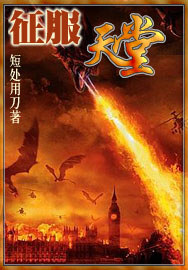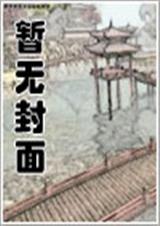英语天堂-第106部分
按键盘上方向键 ← 或 → 可快速上下翻页,按键盘上的 Enter 键可回到本书目录页,按键盘上方向键 ↑ 可回到本页顶部!
————未阅读完?加入书签已便下次继续阅读!
n have time to see him; and I’s got four children。 O; dear me!” said the woman; covering her face with her hands。
It is a natural impulse; in every one; when they hear a tale of distress; to think of something to say by way of consolation。 Emmeline wanted to say something; but she could not think of anything to say。 What was there to be said? As by a common consent; they both avoided; with fear and dread; all mention of the horrible man who was now their master。
True; there is religious trust for even the darkest hour。 The mulatto woman was a member of the Methodist church; and had an unenlightened but very sincere spirit of piety。 Emmeline had been educated much more intelligently;—taught to read and write; and diligently instructed in the Bible; by the care of a faithful and pious mistress; yet; would it not try the faith of the firmest Christian; to find themselves abandoned; apparently; of God; in the grasp of ruthless violence? How much more must it shake the faith of Christ’s poor little ones; weak in knowledge and tender in years!
The boat moved on;—freighted with its weight of sorrow;—up the red; muddy; turbid current; through the abrupt tortuous windings of the Red river; and sad eyes gazed wearily on the steep red…clay banks; as they glided by in dreary sameness。 At last the boat stopped at a small town; and Legree; with his party; disembarked。
Chapter 32
Dark Places
“The dark places of the earth are full of the habitations Of cruelty。”1
Trailing wearily behind a rude wagon; and over a ruder road; Tom and his associates faced onward。
In the wagon was seated Simon Legree and the two women; still fettered together; were stowed away with some baggage in the back part of it; and the whole company were seeking Legree’s plantation; which lay a good distance off。
It was a wild; forsaken road; now winding through dreary pine barrens; where the wind whispered mournfully; and now over log causeways; through long cypress swamps; the doleful trees rising out of the slimy; spongy ground; hung with long wreaths of funeral black moss; while ever and anon the loathsome form of the mocassin snake might be seen sliding among broken stumps and shattered branches that lay here and there; rotting in the water。
It is disconsolate enough; this riding; to the stranger; who; with well…filled pocket and well…appointed horse; threads the lonely way on some errand of business; but wilder; drearier; to the man enthralled; whom every weary step bears further from all that man loves and prays for。
So one should have thought; that witnessed the sunken and dejected expression on those dark faces; the wistful; patient weariness with which those sad eyes rested on object after object that passed them in their sad journey。
Simon rode on; however; apparently well pleased; ocomasionally pulling away at a flask of spirit; which he kept in his pocket。
“I say; you!” he said; as he turned back and caught a glance at the dispirited faces behind him。 “Strike up a song; boys;—come!”
The men looked at each other; and the “come” was repeated; with a smart crack of the whip which the driver carried in his hands。 Tom began a Methodist hymn。
“Jerusalem; my happy home;
Name ever dear to me!
When shall my sorrows have an end;
Thy joys when shall—”2
“Shut up; you black cuss!” roared Legree; “did ye think I wanted any o’ yer infernal old Methodism? I say; tune up; now; something real rowdy;—quick!”
One of the other men struck up one of those unmeaning songs; common among the slaves。
“Mas’r see’d me cotch a coon;
High boys; high!
He laughed to split;—d’ye see the moon;
Ho! ho! ho! boys; ho!
Ho! yo! hi—e! oh!”
The singer appeared to make up the song to his own pleasure; generally hitting on rhyme; without much attempt at reason; and the party took up the chorus; at intervals;
“Ho! ho! ho! boys; ho!
High—e—oh! high—e—oh!”
It was sung very boisterouly; and with a forced attempt at merriment; but no wail of despair; no words of impassioned prayer; could have had such a depth of woe in them as the wild notes of the chorus。 As if the poor; dumb heart; threatened;—prisoned;—took refuge in that inarticulate sanctuary of music; and found there a language in which to breathe its prayer to God! There was a prayer in it; which Simon could not hear。 He only heard the boys singing noisily; and was well pleased; he was making them “keep up their spirits。”
“Well; my little dear;” said he; turning to Emmeline; and laying his hand on her shoulder; “we’re almost home!”
When Legree scolded and stormed; Emmeline was terrified; but when he laid his hand on her; and spoke as he now did; she felt as if she had rather he would strike her。 The expression of his eyes made her soul sick; and her flesh creep。 Involuntarily she clung closer to the mulatto woman by her side; as if she were her mother。
“You didn’t ever wear ear…rings;” he said; taking hold of her small ear with his coarse fingers。
“No; Mas’r!” said Emmeline; trembling and looking down。
“Well; I’ll give you a pair; when we get home; if you’re a good girl。 You needn’t be so frightened; I don’t mean to make you work very hard。 You’ll have fine times with me; and live like a lady;—only be a good girl。”
Legree had been drinking to that degree that he was inclining to be very gracious; and it was about this time that the enclosures of the plantation rose to view。 The estate had formerly belonged to a gentleman of opulence and taste; who had bestowed some considerable attention to the adornment of his grounds。 Having died insolvent; it had been purchased; at a bargain; by Legree; who used it; as he did everything else; merely as an implement for money…making。 The place had that ragged; forlorn appearance; which is always produced by the evidence that the care of the former owner has been left to go to utter decay。
What was once a smooth…shaven lawn before the house; dotted here and there with ornamental shrubs; was now covered with frowsy tangled grass; with horseposts set up; here and there; in it; where the turf was stamped away; and the ground littered with broken pails; cobs of corn; and other slovenly remains。 Here and there; a mildewed jessamine or honeysuckle hung raggedly from some ornamental support; which had been pushed to one side by being used as a horse…post。 What once was a large garden was now all grown over with weeds; through which; here and there; some solitary exotic reared its forsaken head。 What had been a conservatory had now no window…shades; and on the mouldering shelves stood some dry; forsaken flower…pots; with sticks in them; whose dried leaves showed they had once been plants。
The wagon rolled up a weedy gravel walk; under a noble avenue of China trees; whose graceful forms and ever…springing foliage seemed to be the only things there that neglect could not daunt or alter;—like noble spirits; so deeply rooted in goodness; as to flourish and grow stronger amid discouragement and decay。
The house had been large and handsome。 It was built in a manner common at the South; a wide verandah of two stories running round every part of the house; into which every outer door opened; the lower tier being supported by brick pillars。
But the place looked desolate and uncomfortable; some windows stopped up with boards; some with shattered panes; and shutters hanging by a single hinge;—all telling of coarse neglect and discomfort。
Bits of board; straw; old decayed barrels and boxes; garnished the ground in all directions; and three or four ferocious…looking dogs; roused by the sound of the wagon…wheels; came tearing out; and were with difficulty restrained from laying hold of Tom and his companions; by the effort of the ragged servants who came after them。
“Ye see what ye’d get!” said Legree; caressing the dogs with grim satisfaction; and turning to Tom and his companions。 “Ye see what ye’d get; if ye try to run off。 These yer dogs has been raised to track niggers; and they’d jest as soon chaw one on ye up as eat their supper。 So; mind yerself! How now; Sambo!” he said; to a ragged fellow; without any brim to his hat; who was officious in his attentions。 “How have things been going?”
Fust rate; Mas’r。”
“Quimbo;” said Legree to another; who was making zealous demonstrations to attract his attention; “ye minded what I telled ye?”
“Guess I did; didn’t I?”
These two colored men were the two principal hands on the plantation。 Legree had trained them in savageness and brutality as systematically as he had his bull…dogs; and; by long practice in hardness and cruelty; brought their whole nature to about the same range of capacities。 It is a common remark; and one that is thought to militate strongly against the character of the race; that the negro overseer is always more tyrannical and cruel than the white one。 This is simply saying that the negro mind has been more crushed and debased than the white。 It is no more true of this race than of every oppressed race; the world over。 The slave is always a tyrant; if he can get a chance to be one。
Legree; like some potentates we read of in history; governed his plantation by a sort of resolution of forces。 Sambo and Quimbo cordially hated each other; the plantation hands; one and all; cordially hated them; and; by playing off one against another; he was pretty sure; through one or the other of the three parties; to get informed of whatever was on foot in the place。
Nobody can live entirely without social intercourse; and Legree encouraged his two black satellites to a kind of coarse familiarity with him;—a familiarity; however; at any moment liable to get one or the other of them into trouble; for; on the slightest provocation; one of them always stood ready; at a nod; to be a minister of his vengeance on the other。
As they stood there now by Legree; they seemed an apt illustration of the fact that brutal men are lower even than animals。 Their coarse; dark; heavy features; their great eyes; rolling enviously on each other; their barbarous; guttural; half…brute intonation; their dilapidated garments fluttering in the wind;—were all in admirable keeping with the vile and unwholesome character of everything about the place。
“Here; you Sambo;” said Legree; “ta





